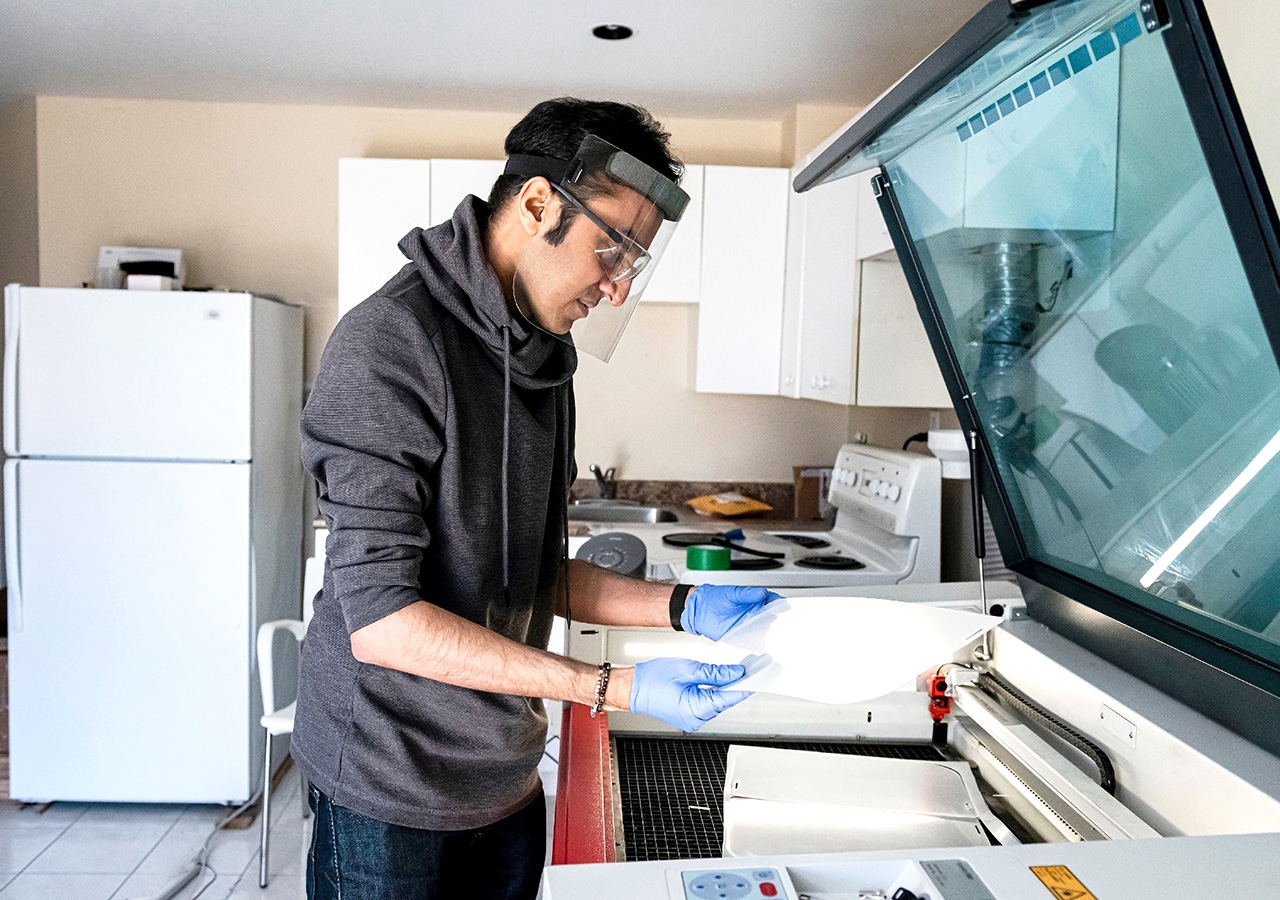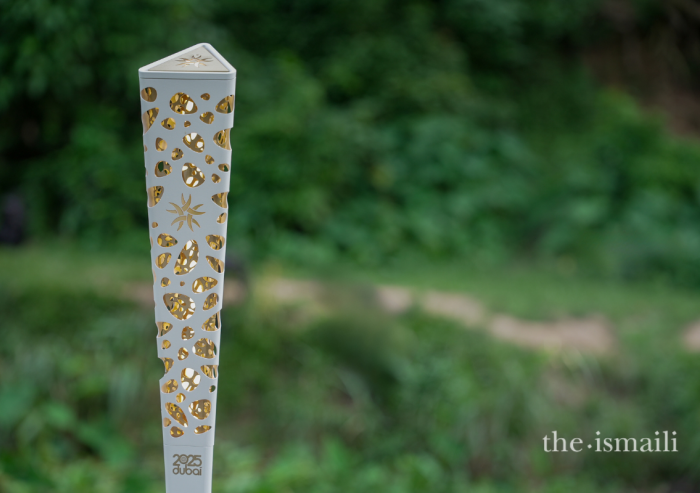“I heard Trudeau’s call to action,” Bhimani said, speaking of a line from Canadian Prime Minister Justin Trudeau’s address to Canada on 23 March. During the speech, Trudeau said his government was reaching out to the country’s post-secondary institutions for innovative solutions to help combat the shortage of masks and ventilators.
A teacher of user experience design at Toronto’s York University, Rahim heard that call to action and began plans for face shields he could fabricate using the industrial laser cutting machine at home in his basement. The 32-year-old carefully chose and used FDA approved materials he knew he’d be able to obtain.
Since the initial design, the Toronto native has worked with and sought feedback from doctors and others in the medical field.
“I’m being very diligent and careful to ensure what I’m creating adds value,” said Rahim, explaining he is already on his third version of the original facemask design.
The second version saw Velcro added to the strap, as the original “one-size-fits-all” design didn’t work for everyone, and on the latest version Rahim added a snap-off feature, allowing the mask to be detached and cleaned while the elastic is thrown in the washing machine.
Another boost to Bhimani’s face shield project came when the Globe and Mail included him in an article highlighting Toronto residents helping solve the shortage in personal protective equipment from their homes. After the article was published on 31 March, Rahim’s inbox was flooded with messages from people wanting to help in various ways, including providing donations.
With that feedback, he launched a crowdsourced fundraising campaign which has already raised over $12,000.
“All the proceeds from the GoFundMe will go to donating shields,” he said, adding that long-term care facilities have expressed the greatest need.
Working at full capacity, Rahim can build approximately 400 to 500 face shields each day and his immediate goal is to fabricate 5,000. His father Nadir helps with assembly and packaging. The face shields even include a set of Ikea-like instructions, for ease of use.
Regarding distribution, the Toronto native has seen requests from medical workers to those running businesses such as restaurants and coffee shops.
“I’m not selling them to individuals because it doesn’t make sense,” he said. “There are front line workers that need them.”
Rahim, who has a bachelor's degree in industrial and product design from Carleton University and an MBA in design strategy from the California College for the Arts, has always enjoyed being creative and working with his hands.
He creates artwork sold at the Aga Khan Museum’s gift shop and has assisted with the design of several Jamatkhanas.
Rahim said he is proud to be part of the Ismaili community, which is doing so much to support and help each other. Regarding all the positive feedback he’s received, Rahim said he’s just doing what he can to help using the skills and equipment he has.
“People think I’m doing something so valuable but honestly I’m not,” Bhimani said. “I feel like [the front line workers] are doing the work. I’m building the ammo.”








